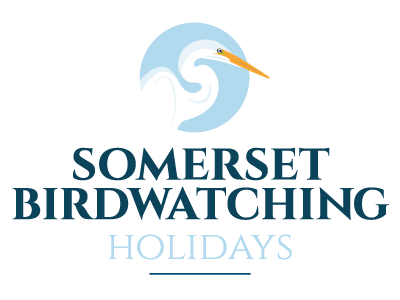A high time was had at high tide
It was the morning of one of the highest tides of the year with a rise in the high water mark of some 12.73 meters. The spring equinox was last Wednesday (20th March) when the amount of daylight and darkness are pretty much equal. In Latin, equinox of couse means ‘equal night’ – (OK, cleaver clogs) – In addition, we had a full moon on Thursday night, so what that actually meant was that Stephen and I got up early and went down to our coastal Patch at Highbridge to see what birds the high tide has brought in.
And what a stonking high tide it was!
Spring tide - River Brue estuary - spot the little egret..
Poor Stephen was hobbling somewhat with a bad back, however he managed (just about, and not very gracefully) to get his leg over the style at the first gate and subsequently ‘shimmy’ along the coastal path to the River Brue’s estuary overlooking Burnham and Steart Island. It was a lovely still spring morning and we were soon rewarded with singing skylarks and linnets along with some spectacular fly-passes by large flocks of waders. Mostly they were redshank and turnstone, however once the main flock had landed further down the estuary I managed to get my scope on a block of birds and identified a rather splendid spotted redshank in its winter plumage. At first I thought it might be a godwit as its bill was considerably longer than the other redshanks, however on closer inspection there was no doubt. Spotted redshanks are quite rare around the Somerset coastline with just the odd passage bird showing up once or twice in the past few years. Nice to see.
Spotted Redshank
The smaller turnstones were good to watch too, and Stephen explained that it was amazing to think that these little birds would fly all the way to the high arctic tundra to breed – not even considering the option of the north of Scotland, Shetland or Iceland, but would press on right up into the high arctic to breed in the northern territories of Canada and Russia. I guess they were just refuelling on our coastal Patch before the next stage of their long flight north - a bit like stopping into Gloucester or Tebay Services on the M6.
We had hope to see some wheatear and sand martins passing through, but no sign today. We had to make do with a few little egrets, a few wigeon, some rather rumbustious Canada geese and the usual shelducks.
Now that the equinox has passed, and it is officially Spring, we hope that as each week passes more and more spring migrants will return to these shores and in particular to our part of Somerset.
We will keep you posted - watch this space for regular updates.


